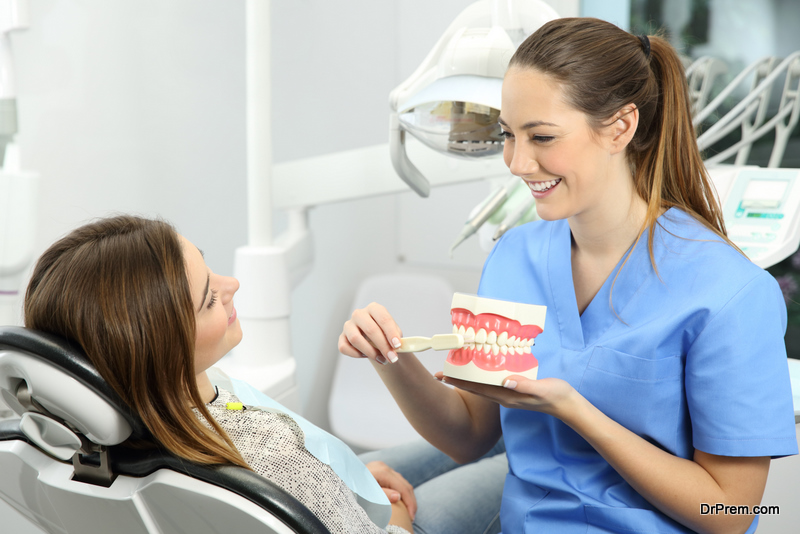Your teeth probably don’t get as much love as they should. Here in the United States, people treat oral care as an afterthought, which is counterintuitive to science. What happens in your mouth significantly impacts your overall health.
However, if it’s been a while since you’ve considered getting care, many things have changed. Here’s how you can take control of your dental health in eight easy steps.
1. Educate Yourself
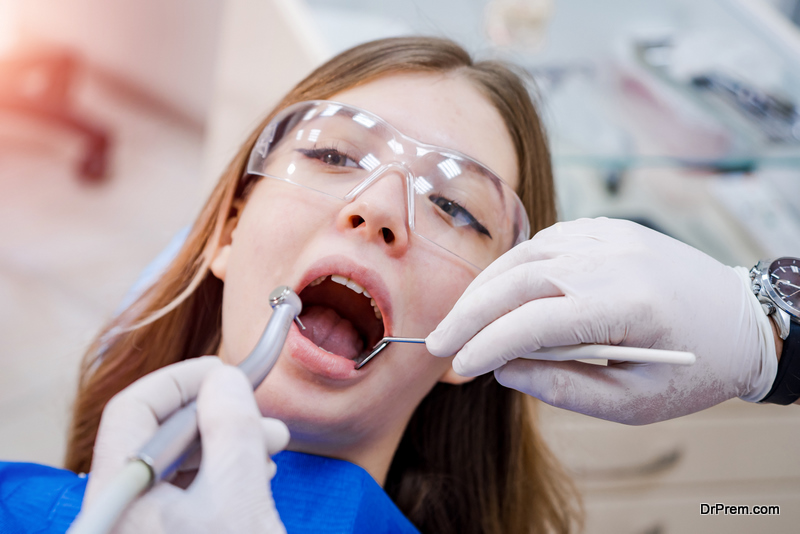 If you do a Google search for “gum disease and Alzheimer’s risk,” you’ll find various articles explaining how researchers found the same oral bacteria that cause periodontal misery in the brains of such patients. They’ve also discovered this strain of staph nastiness in samples taken from heart attack victims.
If you do a Google search for “gum disease and Alzheimer’s risk,” you’ll find various articles explaining how researchers found the same oral bacteria that cause periodontal misery in the brains of such patients. They’ve also discovered this strain of staph nastiness in samples taken from heart attack victims.
Once you begin your educational process, you’ll find the learning journey fascinating. For example, you might have heard statistics about how dentists recommend sugarless gum, but do you know why? Versions containing xylitol can encourage remineralization and help prevent cavities in those prone.
2. Floss
Did you know that less than a third of Americans admit to flossing every day as they should? Food particles and debris can become trapped between your teeth, where bacteria feast on them. If these germs then attack healthy gums, it can weaken the connective tissue holding your teeth in place, leading to loss.
You do have options if you don’t care for the old-fashioned string version. Many people report increased comfort from dental tape, which doesn’t cut into your fingers or gums like the round version. If you have arthritis or another painful condition that makes manipulating the floss challenging, why not invest in a water flosser? Most cost less than $100, and they are far easier for sore hands to operate.
3. Replace Your Toothbrush
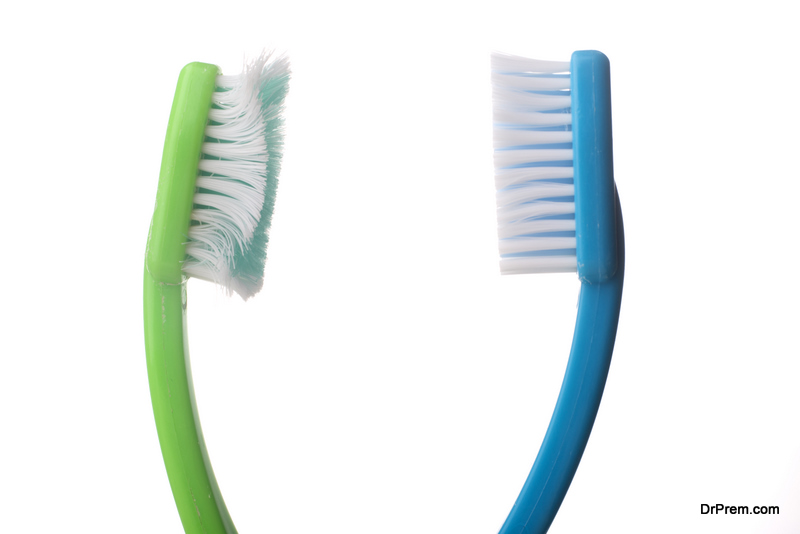 When was the last time you picked up a new toothbrush? If it’s been longer than 12 to 16 weeks, add it to your grocery list, please.
When was the last time you picked up a new toothbrush? If it’s been longer than 12 to 16 weeks, add it to your grocery list, please.
Like floss, you have multiple options for polishing your pearlies. According to the Oral Health Foundation, electric models do a superior job of cleaning than manual. While some varieties cost $100 or more, you can generally find inexpensive battery-operated versions for less than $10 in your favorite grocer’s dental care aisle.
4. Learn How to Brush
Brushing your teeth may seem like a no-brainer — after all, you’ve been doing so since you were a kid. However, if your parents didn’t teach you the proper techniques, it’s wise to educate yourself now.
The most crucial step to remember is to brush along the gumline to remove any trapped food particles and plaque that provide a feast for bacteria. Experts recommend scrubbing for at least two minutes to remove as much biofilm as possible.
5. Stop Going to Bed Gunky
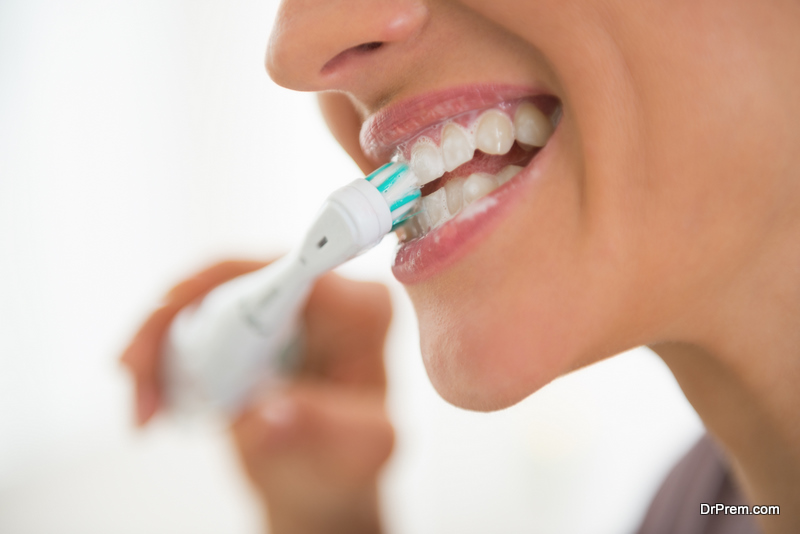 Remember the old advice to brush your teeth after every meal? Rejoice that dentists have now discovered that too much brushing can wear away your enamel — twice is enough. Phew! No more carrying around an oral care kit in your briefcase.
Remember the old advice to brush your teeth after every meal? Rejoice that dentists have now discovered that too much brushing can wear away your enamel — twice is enough. Phew! No more carrying around an oral care kit in your briefcase.
Experts recommend brushing when you wake up and before bed. Doing so before you hit the hay is most vital, as you produce less saliva when you sleep, giving bacteria time to feast and make cavities. You should make one cleansing a day a full one replete with floss and an oral rinse — why not do so before counting sheep? As a bonus, you’ll wake up feeling fresher.
6. Upgrade Your Diet
The foods you eat can influence your oral health. Those high in acids can eat away at tooth enamel, making you more prone to cavities. Processed, sugary foods convert immediately to glucose, which is like liquid turbo fuel for mouth bacteria.
However, crunchy snacks, such as crudites and apples, act as natural toothbrushes to remove food debris from tooth surfaces. Since you don’t brush mid-day, taking along a granny smith in your lunch kettle can leave your mouth feeling cleaner all afternoon.
7. Get Regular Cleanings
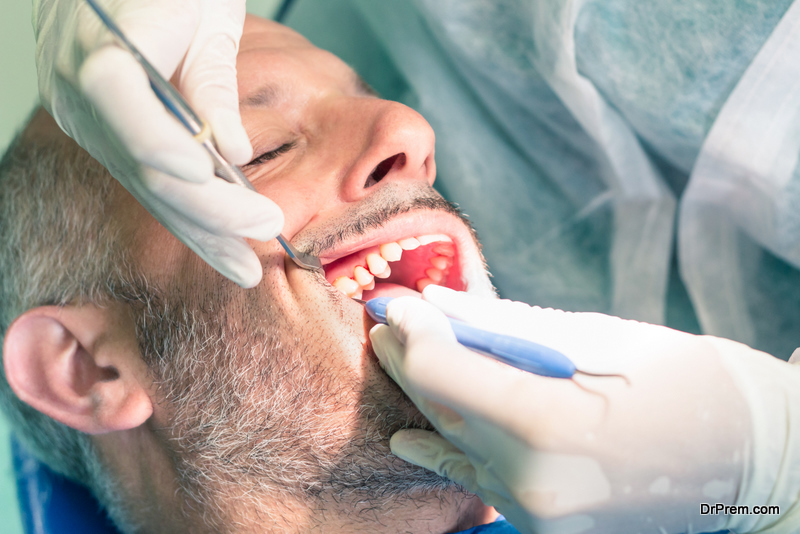 You might put them off if you hate the dentist, but regular cleanings are vital. Getting an annual cleaning allows your dentist to remove the sticky plaque that can lead to cavities and gum disease.
You might put them off if you hate the dentist, but regular cleanings are vital. Getting an annual cleaning allows your dentist to remove the sticky plaque that can lead to cavities and gum disease.
Some experts recommend seeing your provider as often as every six months. If you have a history of oral problems, this approach might make sense. Otherwise, let your budget be your guide — but do book an appointment at least once a year.
8. Seek Financing Options
What can you do if your dentist recommends a crown or another procedure that you can’t afford? Please explore your financing options. Lenders such as Care Credit will extend personal lines that you can pay back over time.
Another option you have is to head south of the border. Roughly 75% of the people who cross the southern border searching for affordable care do so for dental or cosmetic surgery. Your provider probably won’t take your American insurance, but you could still pay less than you would in deductibles and copays. If you choose this route, please do your research and ask for referrals, as you might not have any recourse if you are unhappy with your results.
Take Control of Your Dental Health With These Tips
Your mouth has much to do with your overall well-being. Take control of your dental health with these eight tips.
Article Submitted By Community Writer


